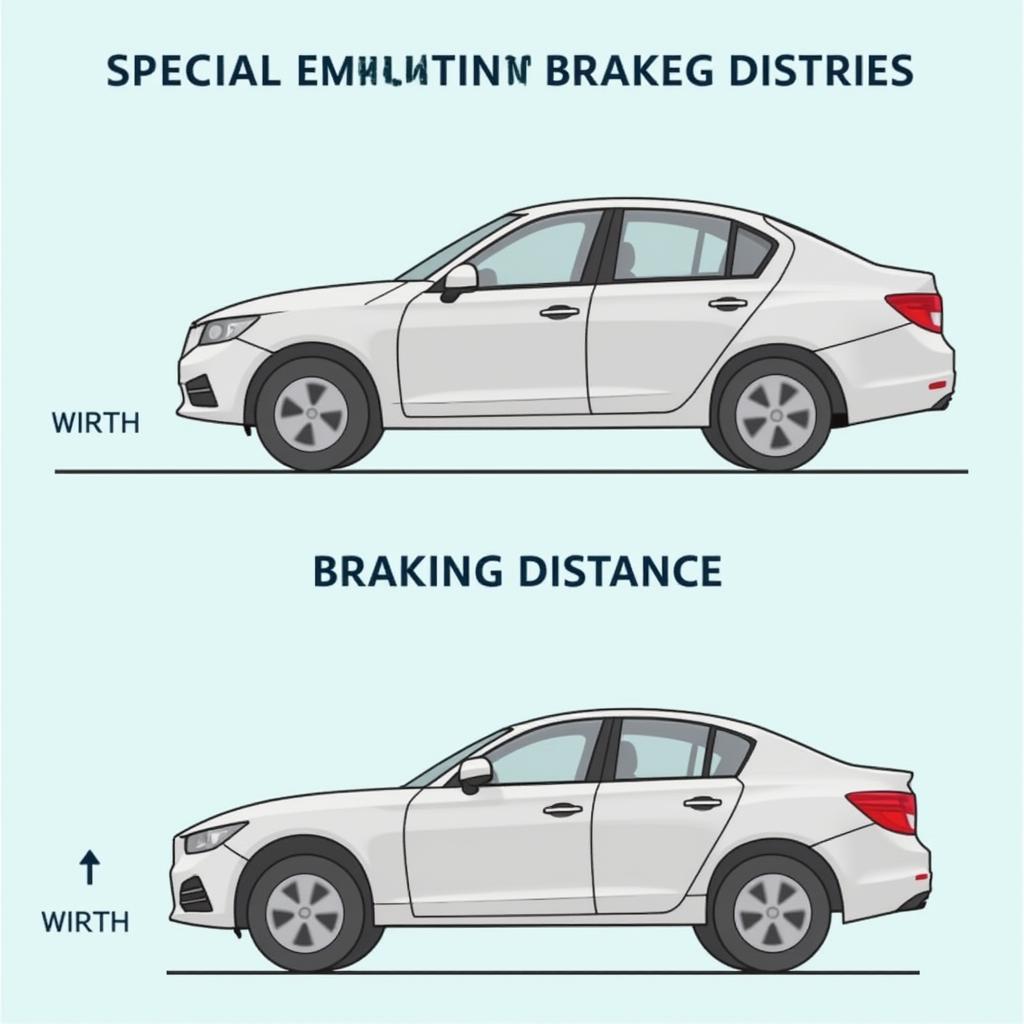Having tires of different widths on your car can create a variety of issues, affecting everything from handling to fuel efficiency. Understanding these problems is crucial for maintaining your car’s performance and safety. So, let’s dive into the potential problems if your car has tires of different widths.
Handling Issues with Different Tire Widths
Different tire widths can significantly impact your car’s handling. Wider tires generally provide more grip, while narrower tires offer less rolling resistance. Having a mix creates an imbalance, particularly when cornering. The car might pull to one side, making it difficult to maintain control. This imbalance can be particularly dangerous in wet or icy conditions. Imagine driving on a slippery road and your car suddenly veers unexpectedly due to uneven tire widths – a scary thought!
 Different Tire Widths Impacting Car Handling
Different Tire Widths Impacting Car Handling
Uneven Tire Wear
Mismatched tire widths can lead to uneven wear. The narrower tire will wear out faster than the wider one because it’s subjected to more stress. This means you’ll have to replace tires more frequently, increasing your maintenance costs. Wouldn’t it be better to have evenly worn tires and save some money?
Braking Performance Affected by Varying Tire Widths
Braking performance can also be compromised. Wider tires generally provide shorter stopping distances, while narrower tires require more distance to stop. A mix of widths can lead to unpredictable braking behavior, potentially increasing the risk of accidents. This is particularly concerning in emergency situations.
 Different Tire Widths Affecting Braking Distance
Different Tire Widths Affecting Braking Distance
Impact on the ABS and Traction Control Systems
The car’s Anti-lock Braking System (ABS) and Traction Control System (TCS) rely on consistent tire behavior. Different tire widths can confuse these systems, making them less effective or even causing them to malfunction. This compromises your safety, especially in challenging driving conditions.
Fuel Efficiency and Different Tire Widths
Believe it or not, tire width can affect your fuel efficiency. Wider tires have increased rolling resistance, meaning the engine has to work harder, consuming more fuel. Having a mix of widths can negatively impact your gas mileage, leading to higher fuel costs. In these times of rising fuel prices, every little bit counts!
What Experts Say About Using Different Tire Widths
“Using tires of different widths is like wearing mismatched shoes,” says automotive engineer John Miller. “It might seem like a small thing, but it can significantly impact your balance and stability.”
“Never mix tire widths unless it’s explicitly approved by the vehicle manufacturer,” advises tire specialist Sarah Johnson. “Doing so can negatively impact numerous aspects of your vehicle’s performance and safety.”
Drivetrain Strain with Mismatched Tires
Different tire sizes can put extra strain on your car’s drivetrain, especially the differential. This can lead to premature wear and tear, potentially requiring costly repairs down the road.
Conclusion: Addressing the Problems of Different Tire Widths
Having tires of different widths on your car can lead to a range of problems, from handling and braking issues to reduced fuel efficiency and increased drivetrain strain. It’s crucial to ensure your car has matching tires for optimal performance and safety. For any questions or concerns about your car’s tires, connect with the experts at AutoTipPro for assistance. You can reach us at +1 (641) 206-8880 or visit our office at 500 N St Mary’s St, San Antonio, TX 78205, United States.
FAQ
-
Can I use different tire widths on the front and rear axles?
Yes, but only if specified by the vehicle manufacturer. -
What if I have a spare tire of a different width?
Spare tires are designed for temporary use. Replace it with a matching tire as soon as possible. -
How can I tell if my tires are different widths?
Check the sidewall of each tire for the width specification. -
Will different tire widths affect my car’s alignment?
Yes, it can make proper alignment difficult or impossible. -
Can I use different tire widths on all-wheel drive vehicles?
Generally, no. All-wheel drive systems require consistent tire sizes. -
Is it legal to drive with different tire widths?
It might be, but it’s highly discouraged due to safety concerns. -
How much does it cost to replace tires?
The cost varies depending on the tire size and brand.




Leave a Reply